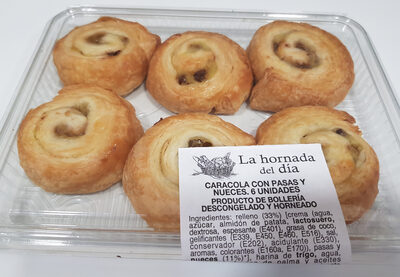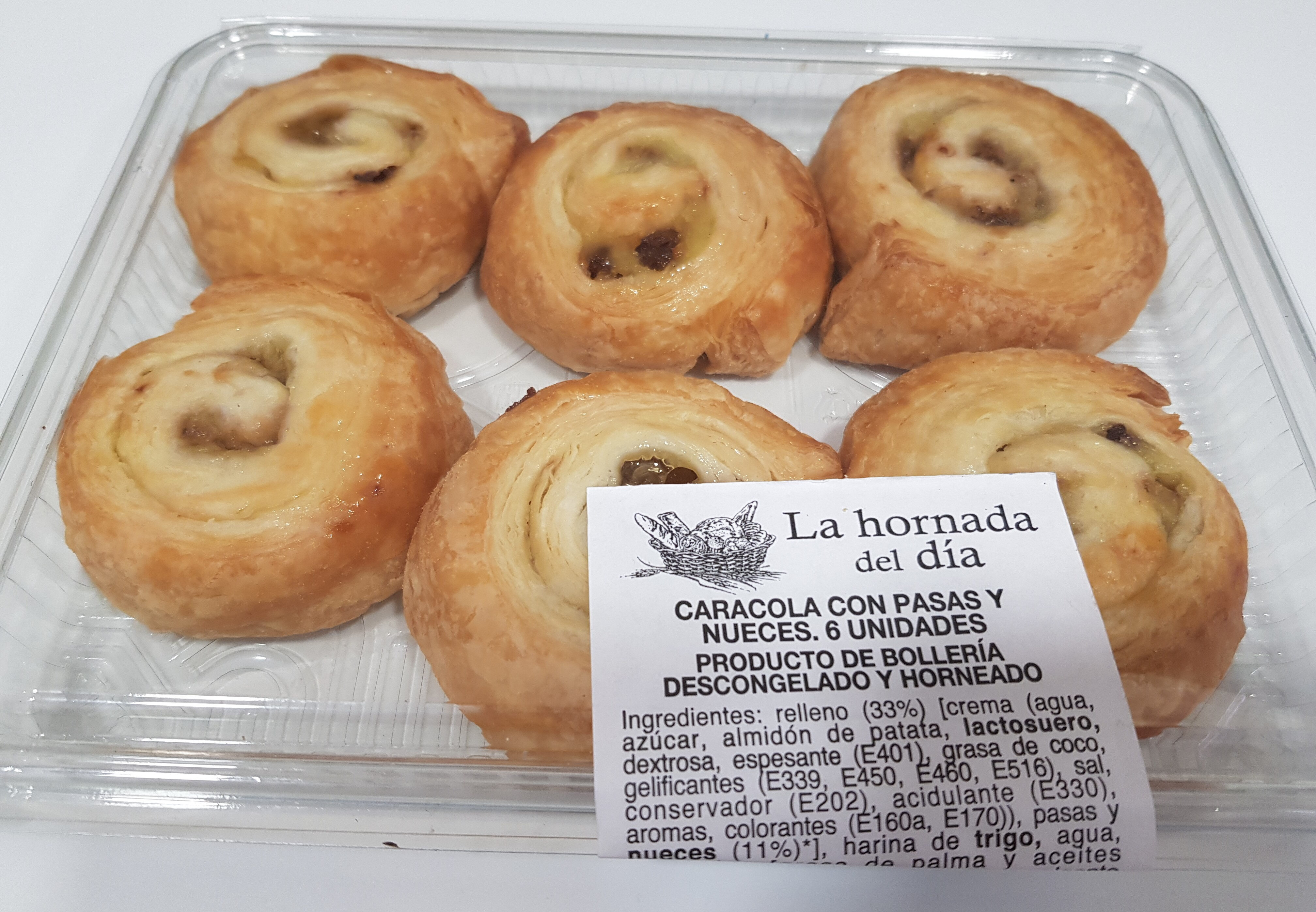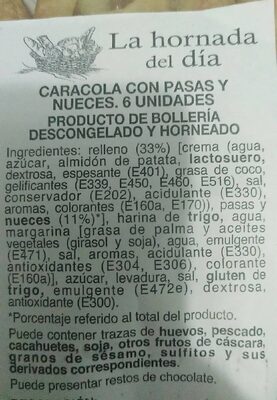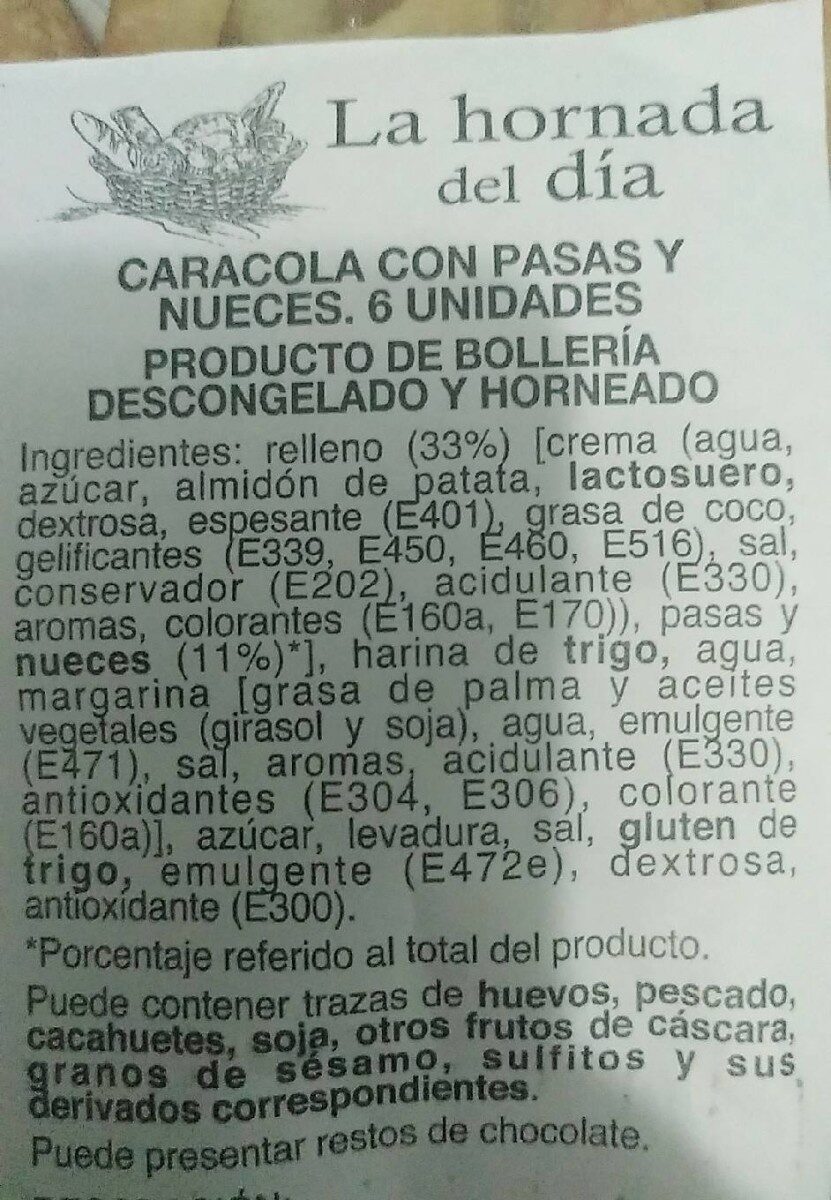Caracola crema/pasas - Dia - 6 unidades
This product page is not complete. You can help to complete it by editing it and adding more data from the photos we have, or by taking more photos using the app for Android or iPhone/iPad. Thank you!
×
Barcode: 8480017000637 (EAN / EAN-13)
Quantity: 6 unidades
Packaging: Plastic
Brands: Dia, La Hornada del Día
Categories: Snacks, Sweet snacks, Biscuits and cakes, Pastries
Countries where sold: Spain
Matching with your preferences
Environment
Packaging
Transportation
Threatened species
Report a problem
Data sources
Product added on by alexrios
Last edit of product page on by packbot.
Product page also edited by joseangel-madrid, kiliweb, musarana, openfoodfacts-contributors, yuka.R1preUU0MVJpL0phdzhGazBqZnVxczVhdzRPTFhFbVVOZTFNSUE9PQ, yuka.ZllFN1BKb3pvL0lLaXMwRHJ3K0k5YzVrbjcveUJsdStPclUrSUE9PQ.
If the data is incomplete or incorrect, you can complete or correct it by editing this page.








